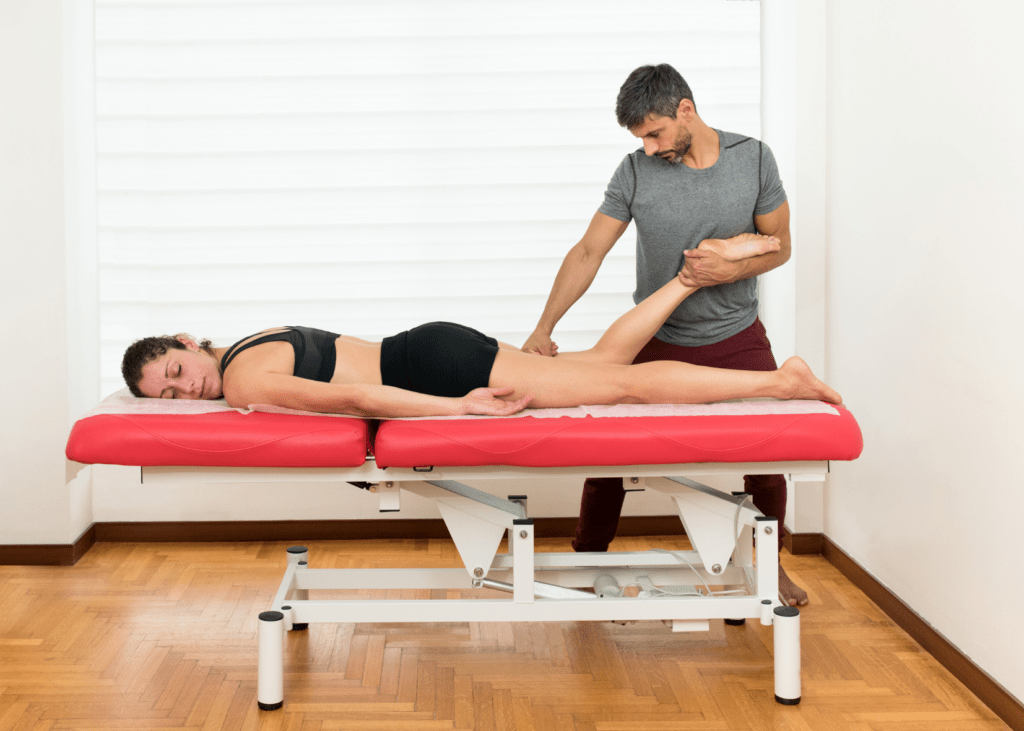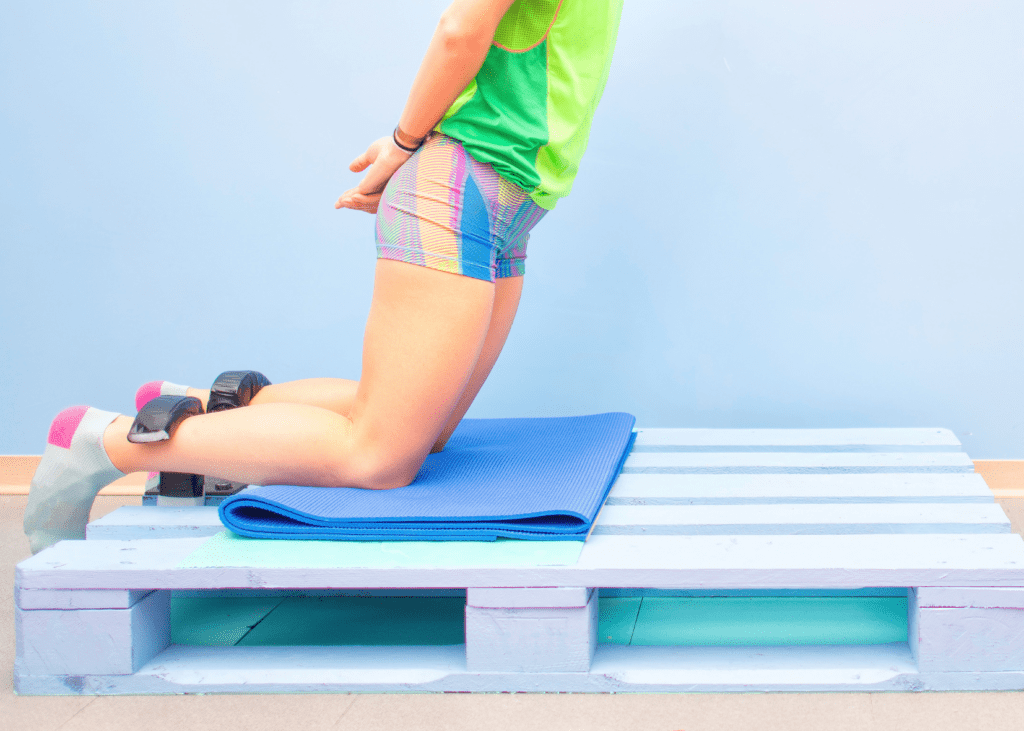Hamstring Tear
When one or more of the muscles at the back of the thigh are stretched above their breaking point, a partial or total tear can ensue. This is known as a hamstring tear. According to the degree of the muscle damage, hamstring tears can range in severity from minor to severe and are divided into three classifications.
The muscle fibres have only modest damage in this moderate hamstring injury. Mild discomfort, stiffness, and a slight decrease of strength and range of motion are possible symptoms. Along with a limp and sometimes light bruising. Recovery could range from 2-6 weeks depending on severity.
This is a moderate hamstring tear when the muscle fibres have sustained more serious injury. Definite discomfort, bruising, swelling, and a loss of strength and range of motion are likely symptoms. Recovery can range from 4 to at worst 12 weeks.
A complete tear of the muscle characterises this severe hamstring strain. A complete loss of strength and range of motion as well as excruciating pain, substantial swelling, and bruising are possible symptoms. Recovery can de dependant on location of tear as sometimes surgery is needed. Recovery could range from 12 to 24 weeks plus.
Regardless of the grade, physiotherapy might be crucial in helping a hamstring rupture heal. Restoring range of motion, reducing discomfort and swelling, and enhancing strength and function in the injured limb are the objectives of physiotherapy.
Stages of Recovery/Rehabilitation
Stage 1 – Acute Phase
Reduce Pain and Swelling, Protect the Affected Leg, and Restore Range of Motion are the goals of the Acute Phase of Rehabilitation.
To do this, you likely will receive hands on treatment such as soft tissue massage, flushing, assisted range of movement, mobilisations and more. Increasing blood flow, and thus healing, at this stage is vital – so heat therapy and gentle movement will be recommended also.


Stage 2 – Strengthening Phase
This stage focuses on strengthening exercises to enhance muscle stability and function around the injured joint. Exercises like hamstring curls, bridging, split squats and hip strengthening fall under this category.
Knowing the right exercise to do, at the right time in your recovery is key and not only can allow a return to activity quicker but can reduce the risk of reinjury
Stage 3- Plyometric and SAQ
Plyometric and SAQ (Speed and Quickness) Training: To enhance neuromuscular control and lower the risk of reinjury, and introduce explosive movement back in; plyometric and SAQ training are a key part of rehabilitation.
Exercises like single-leg work, agility drills, jumping and change of direction are introduced here.


Stage 4 – Return to Play
Sport-specific training is used in the final stage of recovery to get the patient ready to safely resume their previous level of activity. Exercises that mimic the demands of their sport and gradually get harder over time might be a part of this.
Within all the stages of recovery, physiotherapy will utilise interventions like:
- Biomechanical assessment
- Manual Therapy
- Cupping and Needling
- Shockwave
- Education
- Injury Prevention
Massage, joint mobilization, and soft tissue mobilisation are examples of manual treatment techniques that can assist to ease discomfort and increase range of motion in the injured joint. It will speed up recovery but vitally aid prevention of future complications/injuries. Also education is a crucial component of hamstring tear physiotherapy since it can assist the patient in understanding their problem and discovering ways to avoid it in the future.
Overall the extent of the injury and the patient’s response to treatment will determine the length of physiotherapy for a hamstring tear. After a hamstring injury, physiotherapy can aid in the pain reduction, function improvement, and promotion of a safe and effective return to activity.
Contact us now at Achieve Health if you have suffered a hamstring strain/tear. Our specialist clinicans, based in Birmingham, Solihull, Kings Heath and Mosleley, are here to help!

